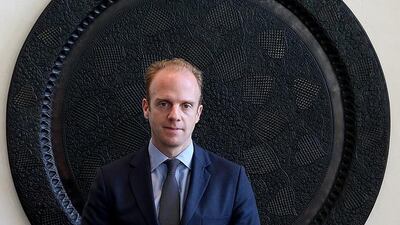Bourses and regulators in the UAE and Qatar should not be complacent about their hard-won emerging market status, in case index providers decide that loosening standards merit a return to frontier market status, according to Alex MacDonald-Vitale, the chairman of the Middle East Investor Relations Association.
Index provider MSCI upgraded Qatar and the UAE to emerging market status in 2014, opening the door for increased inflows from international funds, estimated at about US$1 billion at the time. Saudi Arabia is busily passing market reforms with a view to inclusion in the MSCI’s Emerging Markets Index from late 2018.
"[Inclusion in] MSCI and FTSE's Emerging Market indices is a key motivator for market authorities and for governments," Mr MacDonald-Vitale told The National ahead of the society's annual conference in Dubai today.
“The capital markets uplift that occurs from the upgrade of market status is undeniable and extremely important, as it results in a clear uptick in market activity and professionalism of locally listed companies.”
“The real challenge is a market’s ability to remain at the level that’s expected and to not backslide, which could result in a downgrade.”
Mr MacDonald-Vitale highlighted how Greece had been downgraded to emerging market status by MSCI in 2013, after failing to meet criteria regarding securities borrowing and lending facilities, short selling and transferability.
“This, of course, could happen to the UAE and Qatar, and to Saudi Arabia once it’s included.”
“It’s a risk that has to be considered, and it’s critically important that these markets and listed firms have the requisite corporate governance structures in place, as well as the best investor relations practices that will meet the expectations of the broader investor community.”
The Middle East Investor Relations Association is an independent non-profit organisation dedicated to promoting the investor relations (IR) profession and industry standards in corporate governance, with a view to enhancing the reputation, efficiency and attractiveness of the Middle East’s capital markets.
Mr MacDonald-Vitale, who assumed the organisation’s chairmanship in December, said that there had been a definite improvement in corporate governance and best practice in the GCC in recent years.
“There’s clearly an intention among capital markets authorities and the exchanges themselves to embed this culture in company board,” he said.
The UAE’s Securities and Commodities Authority in January implemented new rules related to investor relations, requiring all listed companies to establish and maintain IR departments, appoint an acting IR officer, and to publish investor presentations showing their financial position, strategy and outlook.
The adoption of corporate governance best practices by company boards, together with consistent enforcement of rules by regulators, is even more important in times of economic slowdown, said Mr MacDonald-Vitale.
“It’s as important if not more so to invest in investor relations and external functions during the difficult times as it is during the good times; this still hasn’t fully sunken in among local firms,” he said.
“For a large investor from outside the region, it’s not enough to dial into a quarterly call or a strategy update. They expect to meet with a company’s top executives face to face at least once a year.”
“This is something that investor relations teams even in developed markets often fail to understand.”
Regulators also have a duty to make sure that standards are enforced on a consistent basis, said Mr MacDonald-Vitale, which may mean the naming and shaming of offending companies and board members.
Saudi Arabia’s Capital Market Authority (CMA) in June sentenced two board members of troubled Saudi contractor Mohammed Al Mojil Group (MMG), including founder Mohammed Al Mojil, to five years in prison for breaching rules relating to accumulated losses, while imposing 1.6 billion Saudi riyals (Dh1.56bn) worth of fines.
Mr MacDonald-Vitale praised the CMA’s actions, and urged Qatar and UAE to follow a similar approach.
“How come Qatar and the UAE haven’t implemented similar standards with their regulations, even though they are emerging markets while Saudi is not?”
jeverington@thenational.ae
Follow The National's Business section on Twitter

